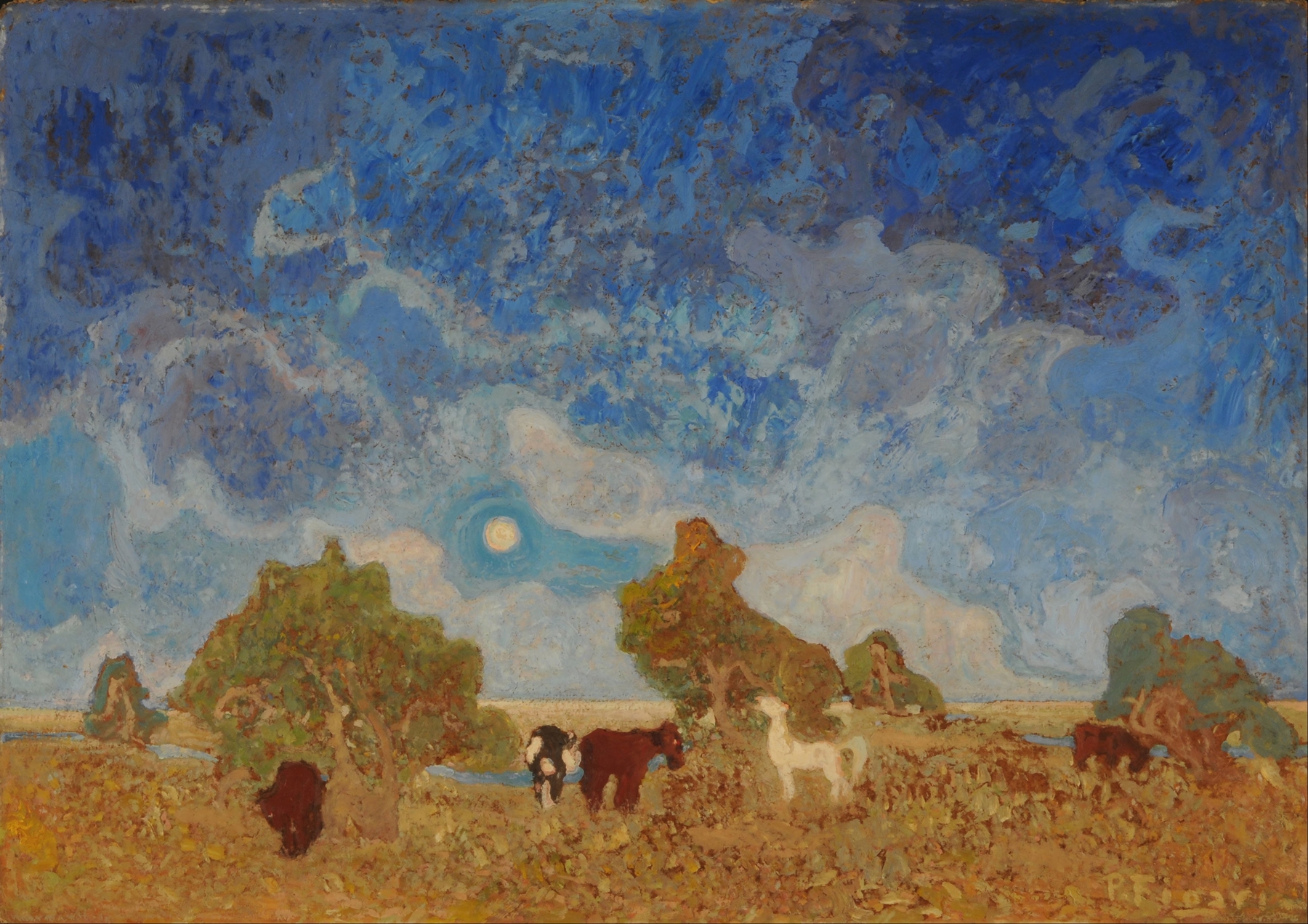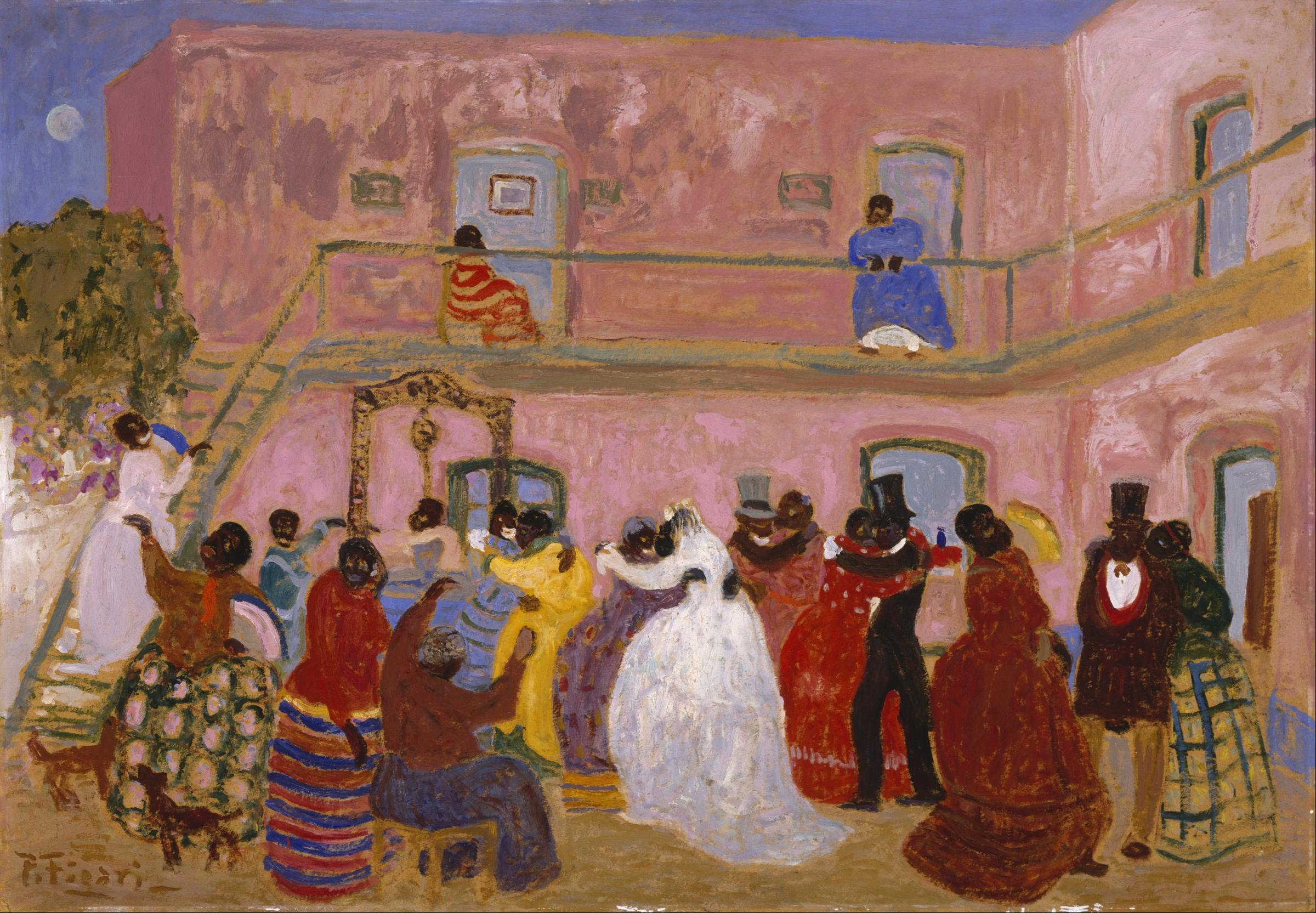Pedro Figari was a Uruguayan painter, lawyer, writer, and politician. Although he did not begin the practice until his later years, he is best known as an early Modernist painter who emphasized capturing the everyday aspects of life in his work. In most of his pieces, he attempts to capture the essence of his home by painting local customs that he had observed in his childhood.
Figari painted primarily from memory, a technique that gives his work a far more personal feeling. His unique style, which involved painting without the intention to create an illusion, sparked a revolution of identity in the art world of Latin America, along with other prominent Latin-American artists such as Diego Rivera and Tarsila do Amaral.
Pedro Figari painted today's work during his nine-year stay in Paris (1925 to 1934), amid the complex backdrop of interwar Europe. The painting is dated around 1930, coinciding with Uruguay’s centennial celebration of the first constitution known as Jura de la Constitución, popular in gaucho (horseman and cowhand of the Argentine and Uruguayan Pampas) iconography. Like many of Figari’s works from this period, the composition features a low, uninterrupted horizon. This contrasts the vast expanse of sky, which dominates three-quarters of the canvas, and the narrow strip of land below. Within this confined space, the foals' almost abstract forms take on a frieze's rhythmic quality.
Have a great Monday, everyone!
P.S. Here are 10 women artists who pioneered modern art in Latin America. How many of these famous names do you know?


 Pedro Figari
Pedro Figari